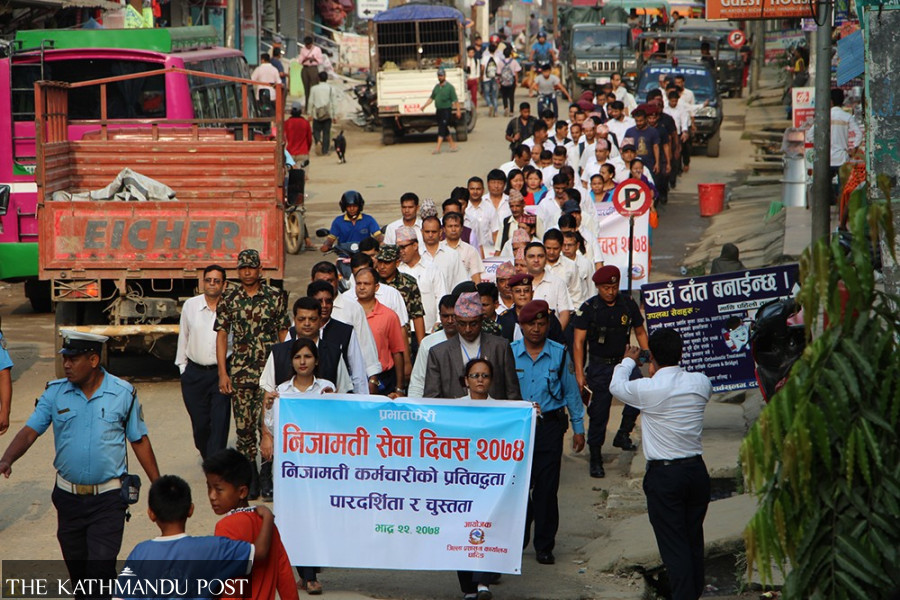Editorial
Mismatched incentives
Just giving out gongs won’t serve the purpose either of motivating civil servants or attracting qualified ones.
This year, from a pool of around 68,000 Nepali civil servants spread over three tiers of the government, not one was eligible for the annual ‘Best Civil Servant’ award. In fact, for the eighth year running, no one has received this coveted honour. Perhaps the criteria are too stringent. To be eligible, a civil servant must have served in a permanent position for at least 15 years. The concerned individual should have achieved 100 percent performance evaluation for the past five years, not faced any departmental action in the past 15 years, and not have unresolved financial discrepancies in the year of evaluation. And yes, they must also have regularly submitted property details. For one person to meet all these criteria is nigh on impossible. It does not help that at times even when the ‘best employee’ has been selected, the person was later found to be undeserving. For instance, the award’s first recipient, Surya Prasad Gautam, was later dragged into controversy for supposedly grading his own wife's Public Service Commission examination papers. This makes the task of the selection panel harder still: they don’t want to get it wrong and later be mocked and trolled.
This failure to find an honest and hard-working civil servant coincides with a declining interest in the Nepali civil service in general. In the past, many young college graduates saw civil service as a stable and long-term source of income and employment. The salaries were healthy, often with the prospect of bonus. Generous retirement and pension schemes were added lures. But very few young graduates these days are interested in the civil service that is often far less attractive in terms of pay and perks compared to the private sector. More than that, the allure of foreign education and jobs is just too strong. The Nepali state officials have also done a pathetic job of attracting bright youngsters to civil service. The Federal Civil Service Bill remains stuck in Parliament. As things stand, it is hard to match the incentives on offer with the growing aspirations of today’s youngsters. Likewise, there is a big dearth of provincial and local level employees, with most civil servants reluctant to serve outside of Kathmandu and a handful of urban centres. It is getting harder to find decent civil servants, let alone award-worthy ones.
A wholesale reform of the Nepali civil service is thus vital. But that seems a long way off. Although the three tiers of government are now in place, the state machinery is heavily centralised. Corruption and inefficiency hobble nearly all public offices. Nor are today’s young job-hunters looking for lifetime jobs where, moreover, the only way they can climb up the career ladder is by sucking up to their bosses and political leaders rather than through the quality of their work. Unless there is a thorough clean-up of the image of Nepal’s civil service—in terms of better pay and perks, clean and clear criteria for promotion, the autonomy to work free from political pressure, to name a few desired reforms—just giving out gongs won’t serve the purpose either of motivating employees or attracting qualified ones. Meanwhile, it may not be a bad idea to shelve this award unless a system is in place to produce the kind of civil servants worthy of getting it.




 13.12°C Kathmandu
13.12°C Kathmandu














